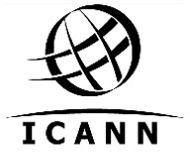|
At
Fabulous Warner was known for publishing detailed white
papers on a variety of industry topics, so he
made a point of noting that the case study
covering DomainAdvertising results is not
an academic paper. In this case he called the
format a general dialog with supporting numbers,
all of which are bundled into a tidy10-page Powerpoint
presentation.
Warner
also noted, "The study specifically
restricts traffic to English speaking
countries, excludes domains that are banned by
upstream providers, and only includes domains in
categories with our design system implemented."
With that in mind, the numbers he cites are quite
impressive. Some of the highlights include:
•
67%
of domains performed better on the Domain
Advertising system (compared to their previous
provider's system) under test conditions.
•
On
aggregate there was a 50% increase in
revenue for the domains tested
•
A
very consistent result was achieved across
all traffic volume ranges
•
There
was a 164% increase in revenue for the
67% of domains which were “won” by
Domain Advertising ("won" meaning the
domain performed better on the DA platform than it
had with its previous provider).
•
$96
RPM aggregate revenue was achieved on the 67%
of domains won by Domain Advertising (English
Speaking Countries)
Warner
said, "A
lot of domain owners said parking is dead.
When I came back into the industry a year ago I
would have agreed. Now I would say that
parking wasn’t dead it just needed a push
to get out of the rut it was in. The
DomainAdvertising designs are fantastic -
the revenue is better." Still Warner allowed,
"Domain Advertising won’t be the solution
for every domain. Properly managed
around two thirds of the time we will be the best
provider, but every domain needs to be managed on
a case by case basis.”
Warner attributes a lot of the the system's
success to human optimization applied to
the domains accepted into their system. That
approach has created one challenge for the
company. “We have been inundated with
domain portfolios hoping to trial our
system," Warner said. "We are managing
those requests as priorities dictate while
ensuring that the outcomes for each client are met
successfully. What we don’t want to do is
take on so many requests that clients become
dissatisfied with the speed that we can optimize
their domains. Our level of optimization takes real
work – it isn’t just a computer churning
out results”
|

|
Warner
is quick to credit ParkLogic for helping
DA move the ball down the field.
“ParkLogic did the hard yards with
us," Warner said. "Through early
development bugs, reporting glitches, and
design flaws – they stuck with us to
achieve the outcomes we have today.
For the work they have done with us they
deserve a great deal of credit.”
|
|
“What
I liked about testing with ParkLogic is
their innovative attitude,"
Warner added. "They worked
with us to squeeze out more revenue from
every domain. When we weren’t the best
provider they gave us feedback to improve
and made sure the clients still made the
most revenue possible while we
optimized. The result was an extraordinary
outcome for two thirds of the domains
tested." |
|
|
One other
note to day. ICANN's 39th
international meeting got
underway Sunday in Cartagena, Colombia
where it will continue through Friday
(Dec. 10). One of the most interesting
things that will come out of this meeting
will be how ICANN decides to proceed with
their plan to roll out an unlimited
number of new gTLDs. They
are being whipsawed between competing
interests with some adamantly opposed to
the plan and others in favor of it. |

|
|
As
Michael Berkens reported last
week, one especially powerful
voice - the U.S. Department of Commerce
(the government entity that allows ICANN
to function under a current agreement
between the two bodies) has come out against
going forward with a new gTLD rollout at
this time. Will ICANN ignore the
government and risk the consequences, or
further delay what seems to have become a
never ending process that no one seems to
be happy with? |
|